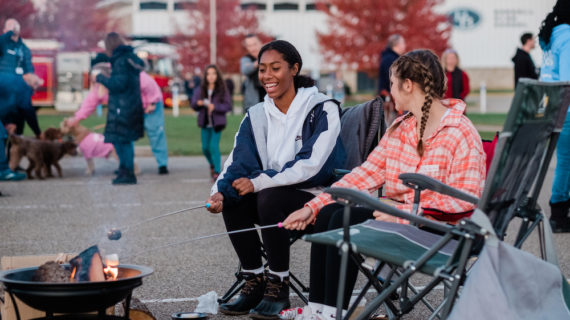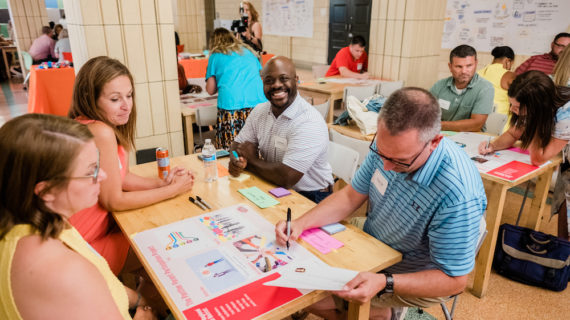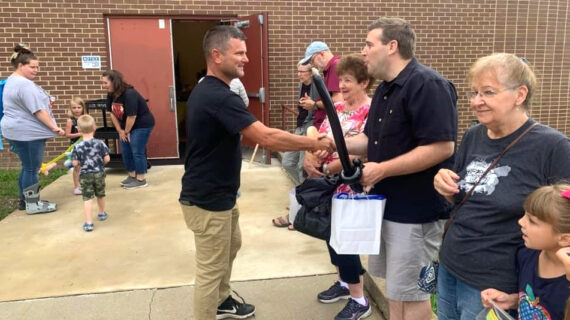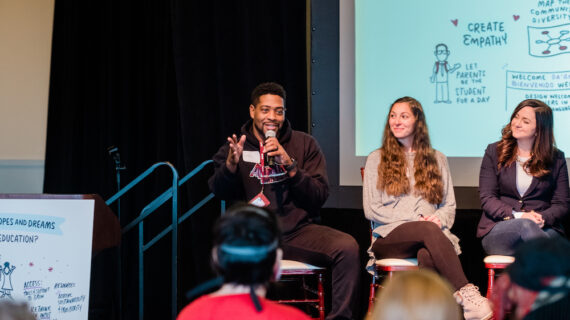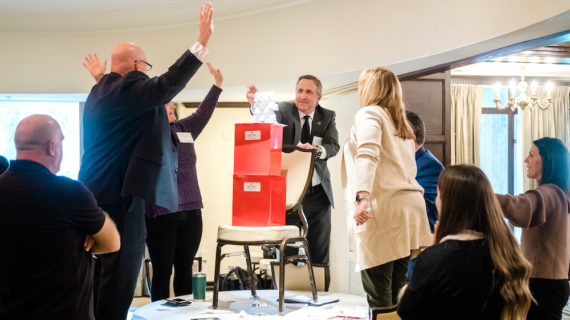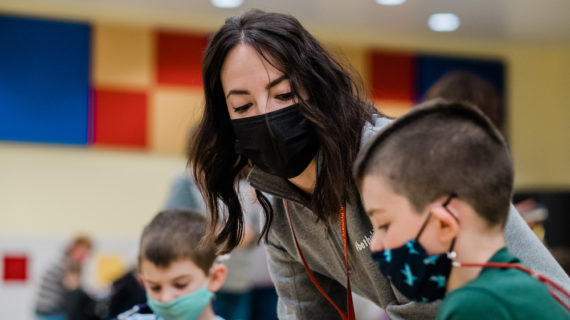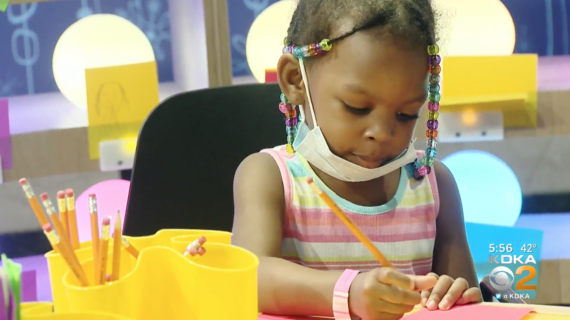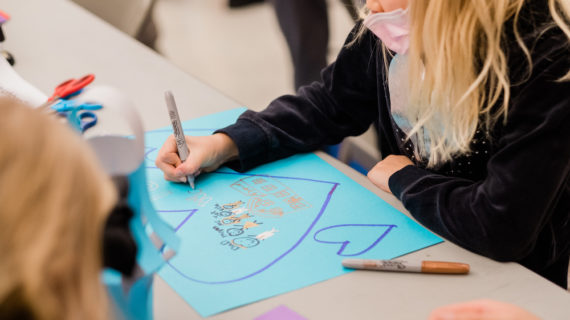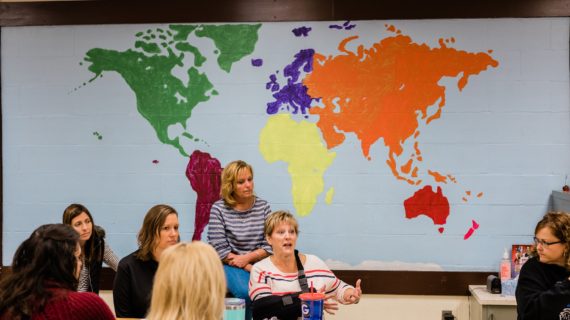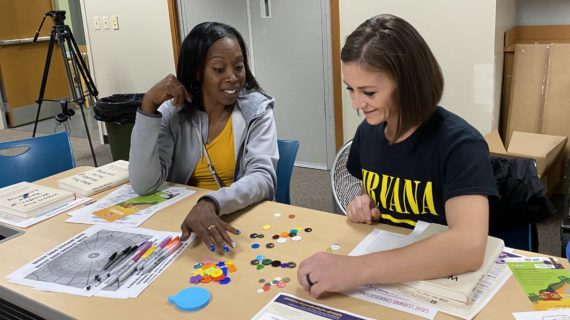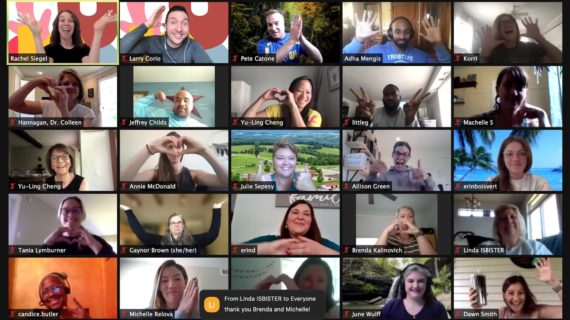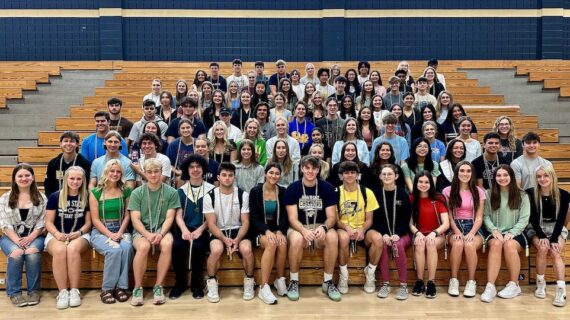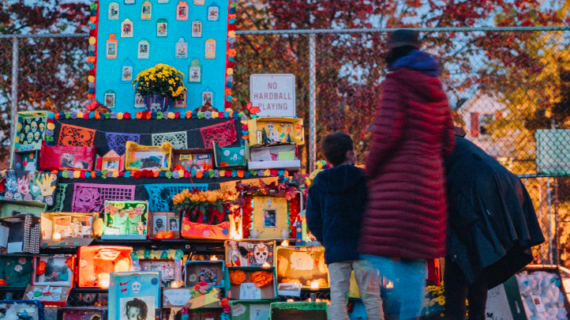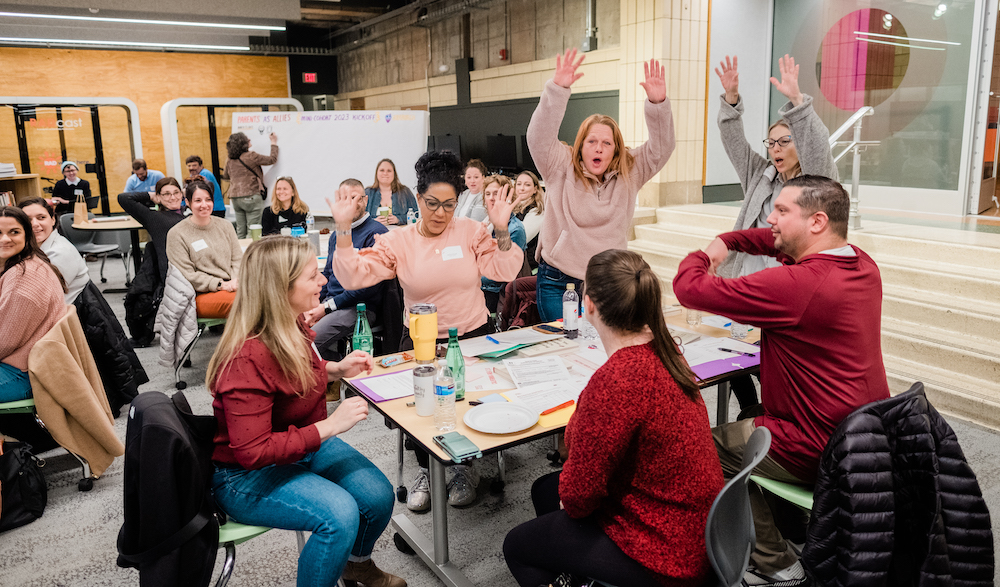
Human connection and deep listening: Parents as Allies teams are reimagining family-school engagement
Sometimes the first step toward connecting an entire community is building relationships among just a handful of people. Of course, that’s not as easy as it sounds: Those first conversations between strangers can be awkward, as each person tries to get beyond self-consciousness and preconceived notions. But if people are willing to talk and to listen, incredible things can happen.
That’s where things began for the team from Baldwin-Whitehall School District, a group of parents and school staff who had agreed to join the Parents as Allies research project. They met for the first time on March 13 at the Children’s Museum of Pittsburgh, gathering with eight other groups from local school districts to learn about building closer connections between families and schools.
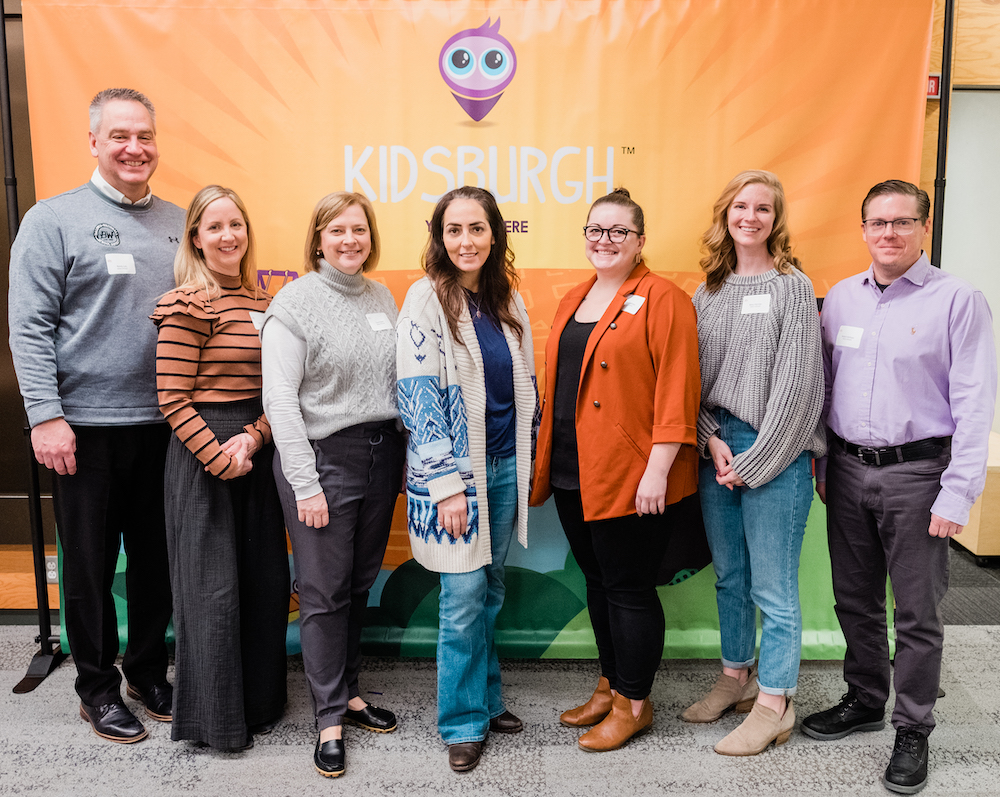
Many of the folks from Baldwin-Whitehall didn’t know the others on their team, despite living and working in the same community. It was the same for those who had come from other school districts – Ambridge Area, Big Beaver Falls, Butler Area, California Area, Fox Chapel Area, Frazier, Freeport and also the Pittsburgh Promise, a nonprofit scholarship organization affiliated with the Pittsburgh Public School district.
Over the course of that day, though, things began to change.
Led by the enthusiasm of Adha Mengis and Rachel Siegel, who facilitate the design sprint groups participating in Parents as Allies, these teams worked through ice-breaking activities. They asked each other questions and listened carefully to the answers. They brought a sense of humor to strategically silly crafts projects like making paper hats designed with one another’s interests in mind.
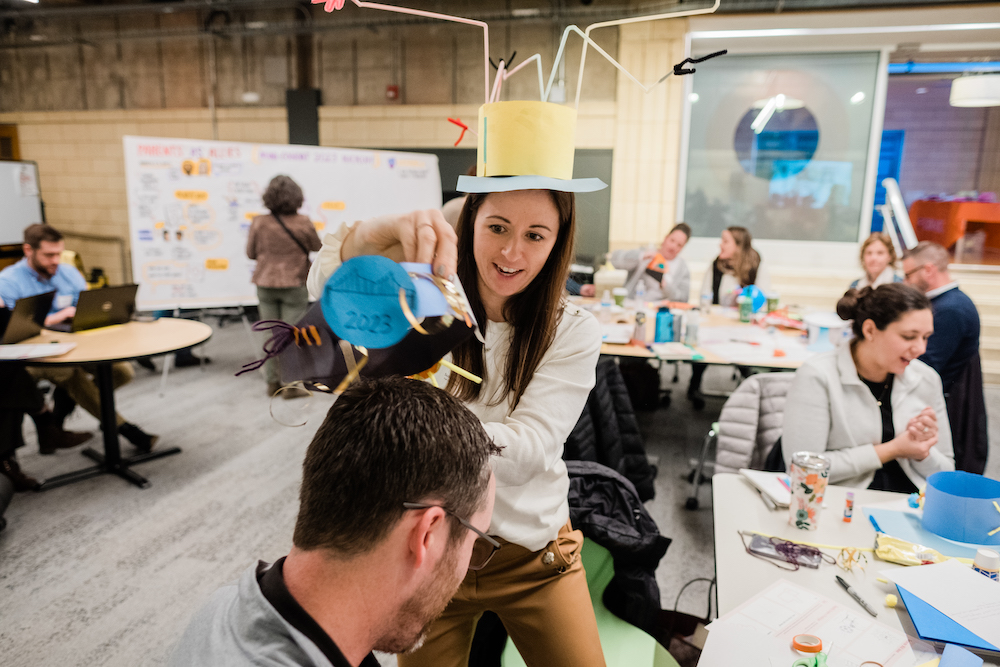
As the day progressed, broad-brush ideas melted away. Team members saw each other as individuals, discovering compassion and empathy for the complicated roles that parents, teachers and school administrators all try to play in the vital work of raising and educating kids.
Three months later – after bringing this spirit of connection into their communities through “empathy interviews” and dreaming up small hacks to build stronger family-school engagement – these teams gathered again for a virtual meeting on June 13. At that meeting, Baldwin-Whitehall superintendent Randall Lutz spoke about seeing his team “moving from uncomfortable to comfortable” with one another.
This three-month project wasn’t always easy. But during springtime – arguably the busiest time of the school year – these nine groups carved out minutes and hours in the service of building something new.
“Folks called in from baseball games,” Mengis remembers, and they had conversations “deep into the night” to get this work going.
As the weeks passed, they kept on tackling a deceptively challenging question: How might we build stronger engagement between families and schools for the benefit of our students? In search of answers, the nine participating school districts conducted a total of 53 empathy interviews and brainstormed 189 hacks to bring parents and school staff together.
Along the way, Siegel says, these teams ”affirmed each other, learned from each other and listened deeply.”
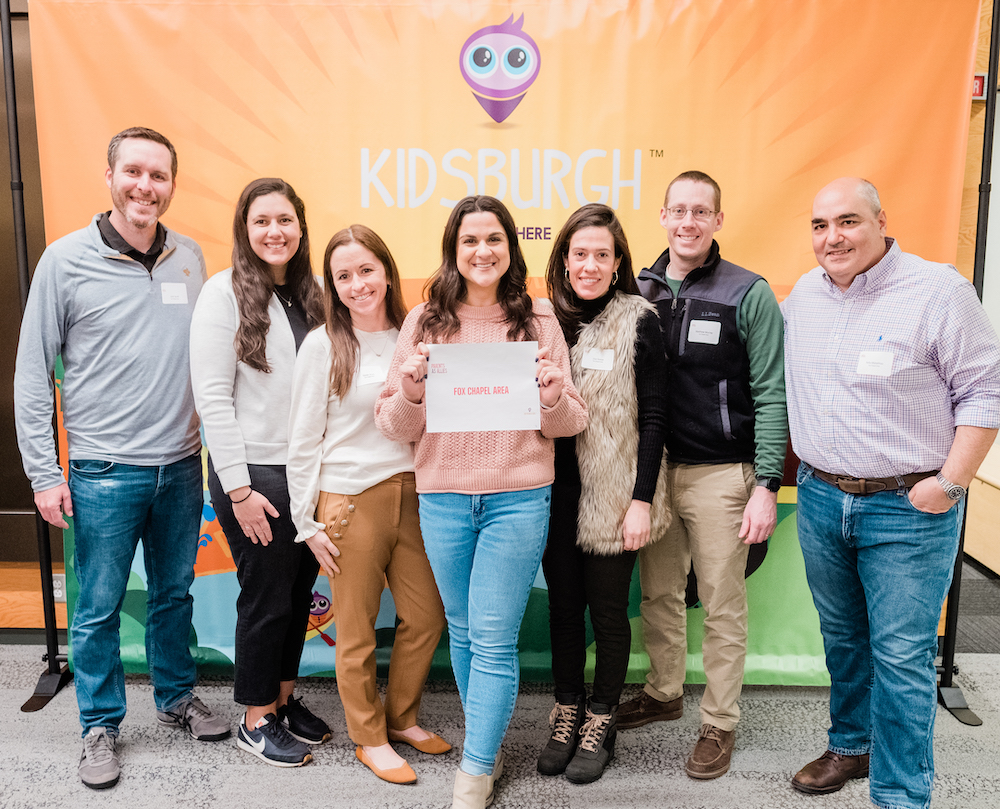
Many of the teams started with the premise that they shouldn’t rely only on their collective knowledge. They needed to learn more. The Fox Chapel team, like several other teams, addressed that by creating a parent engagement survey to better understand the priorities and needs of district families.
That feedback, which will guide the team’s future projects, was “invigorating for all of us,” says Lisa Soose, a Fox Chapel parent and co-lead of the district’s Parents as Allies team.
“These parents really want to work together with the teachers and the teachers really want to work together with the parents,” Soose says. “I’m really energized by the results that we have moving forward and I think that this school year is going to be really exciting.”
The Frazier team also collected feedback through a parent survey, and chose to make it anonymous. “We wanted to really create an opportunity for them to be transparent and thoughtful,” says Frazier elementary school principal and Parents as Allies team co-lead Amanda Law. “Then, as a follow up, we went through those comments and suggestions all together.”
The Butler Area team chose a similar approach, using a spring showcase event and a chorus concert at school to hand out an anonymous survey to parents. “We didn’t have a lot of results,” says Butler parent and team co-lead Crystal Zier, “but we have really great quality results. The parents that took the time really sat down and explained their thoughts.”
Some teams combined a survey with their own social event: At Big Beaver Falls, the team hosted a “snack and chat” event where parents and teachers could connect in a casual way. Activities like a scavenger hunt created opportunities for conversation, and parents were given a survey on their way out the door that asked whether the event had helped them feel more connected to the school.
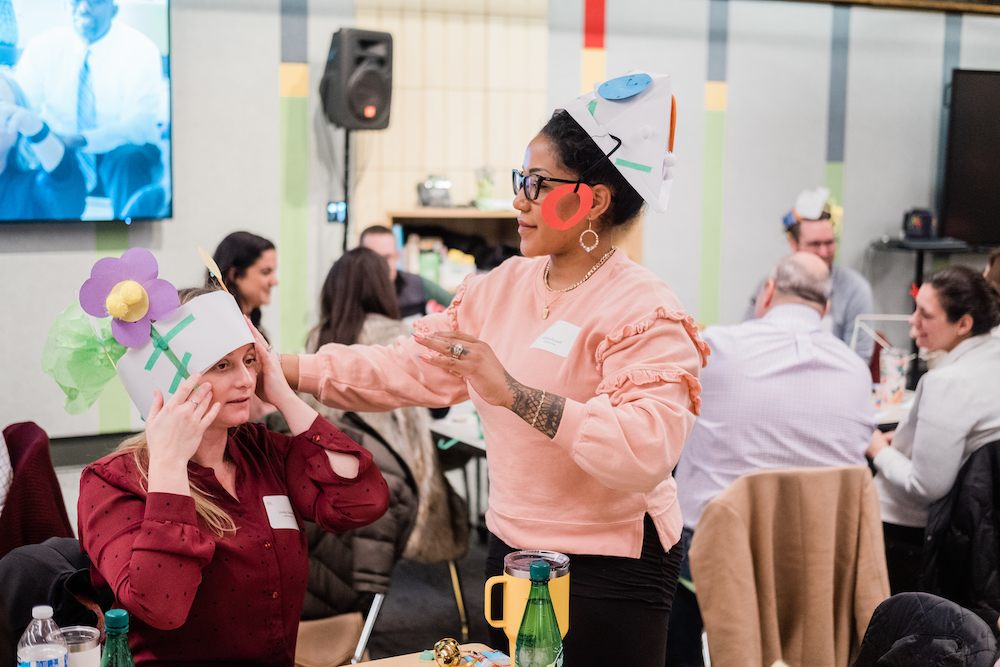
For all nine teams, these initial “mini-hacks” are just the beginning. Each team is eligible to request up to $3,000 in further grant funding for larger family-school engagement projects that they will complete by the end of October.
Just like the 22 districts in the larger Parents as Allies cohort, they will brainstorm their own ideas and define the success of those ideas through a range of different measurements. Then, later this fall, a joint celebration will bring together both cohorts to compare notes and celebrate their ongoing effort.
